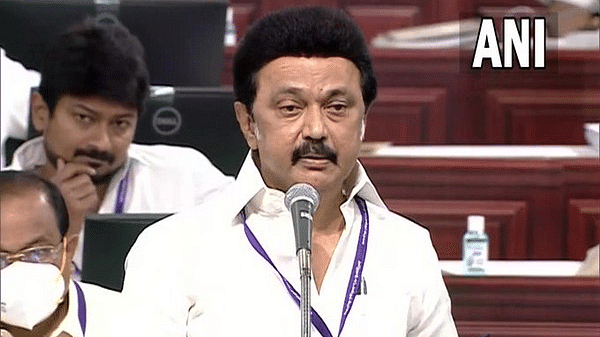New Delhi: The DMK-led Tamil Nadu government Monday introduced a bill in the state assembly seeking exemption from the National Entrance-cum-Eligibility Test (NEET) meant for admission to medical colleges.
“Today, I have presented the resolution against NEET. You (AIADMK) also brought this resolution. I urge opposition parties to extend their support to this resolution,” news agency ANI quoted CM Stalin, as saying.
Today, I have presented the resolution against NEET. You (AIADMK) also brought this resolution. I urge opposition parties to extend their support to this resolution: Tamil Nadu CM MK Stalin in the Legislative Assembly pic.twitter.com/VcmjGvseZV
— ANI (@ANI) September 13, 2021
The bill seeks to provide for admission to undergraduate courses in medicine, dentistry, Indian medicine, and homeopathy on the basis of marks obtained in Class 12 exams. It says that an exam like NEET has “shattered the hopes and dreams of Tamil Nadu students” aspiring for a medical or dental seat.
The introduction of the bill comes a day after a NEET aspirant’s death by suicide was reported from the state. The 20-year-old student, Dhanush, was set to appear for the NEET exam Sunday but died on the eve of the exam.
The matter echoed in the Tamil Nadu assembly, along with the discussion of the NEET exemption bill. The opposition led by AIADMK targeted the government holding it responsible for the student’s death. In response, Chief Minister Stalin introduced the NEET exemption bill.
‘NEET undermines diverse social representation’
According to the statement and objects of the bill presented in the assembly, a high-level committee had conducted a study in the state to find out “whether the NEET-based admission process has adversely affected the social, economical and federal polity and the students of rural and urban poor, those who studied in government schools, those who studied in Tamil medium or any other section of students in Tamil Nadu”.
It adds that the committee’s finding has “reported that NEET has clearly undermined the diverse social representation in MBBS and higher medical studies, favouring mainly the affordable and affluent segment of society while equally thwarting the dream of pursuing medical education by the underprivileged social groups”.
The bill further says that the most affected by NEET are students of Tamil medium government school with a rural background, those having parental income less than Rs 2.5 lakh per annum and the socially depressed and disadvantaged groups such as most backward classes, SCs, STs.
It adds that the committee has “recommended among others that the state government may pass an Act, similar to that of the Tamil Nadu Association in Professional Educational Institutions Act, 2006, indicating the need for the elimination of NEET at all levels of Medical Education and get the President’s assent for the same”.
History behind NEET opposition
Opposition against NEET is a long-standing issue in Tamil Nadu because of the belief that it favours students from a certain section of society and is against those who are from socially and economically backward classes.
It’s not just Tamil Nadu, however, that has had issues with NEET. States like Andhra Pradesh, West Bengal, Karnataka and Gujarat had also opposed NEET when it was first held in 2013.
The states at that time said that it will bring about huge changes in the syllabi and disrupt state-specific admission processes.
After all these years, Tamil Nadu is the only state that has continued its opposition.
TN’s NEET tryst
The first NEET-UG, which replaced the All India Pre Medical Entrance Test (AIPMT) for all central and state colleges, was held in 2013. After opposition from several states and filing of multiple petitions, it was cancelled by the Supreme Court, only to be reinstated in 2016 to be held again from the 2017-18 academic session.
In 2017, the apex court rejected all petitions seeking Tamil Nadu to be exempted from NEET, resulting in the suicide of a NEET aspirant. It had become a major issue in the state at that time as well.
According to a report in The Hindu, The Christian Medical College, Vellore; the states of Andhra Pradesh and Tamil Nadu; several associations of private medical colleges; DD Medical College and DD Hospital, Tamil Nadu; and various individual colleges had filed petitions in high courts and obtained an interim stay on the applicability of the NEET to them. These cases were later transferred to the Supreme Court on a petition by the Medical Council of India.
Before NEET, admissions to medical colleges in Tamil Nadu were done in two ways — institute specific exams and admissions done on the basis of Class 12 marks, which is the school qualifying exam.
Institutes such as CMC Vellore had their own entrance exam that they used for granting admission to medical aspirants.
The bill presented in the assembly Monday adds that even before 2017, Tamil Nadu had one of the highest numbers of medical and dental education institutions and the standard of medical and dental professional graduating from these institutes were of high mettle. Therefore depending on one exam will not change the standards.
(Edited by Arun Prashanth)



